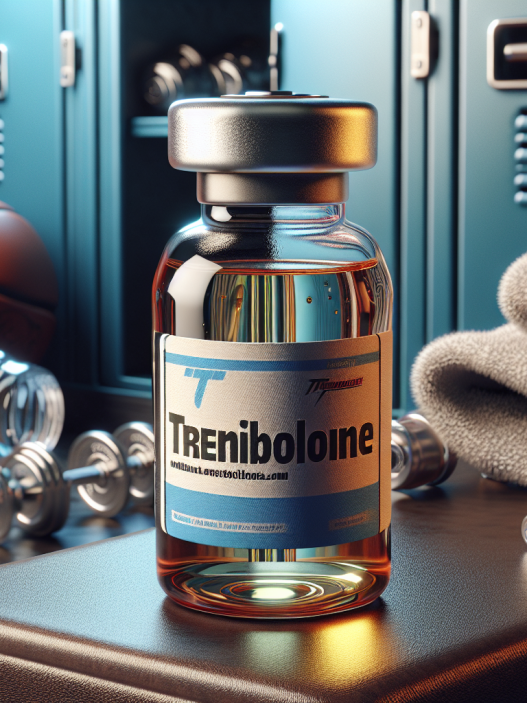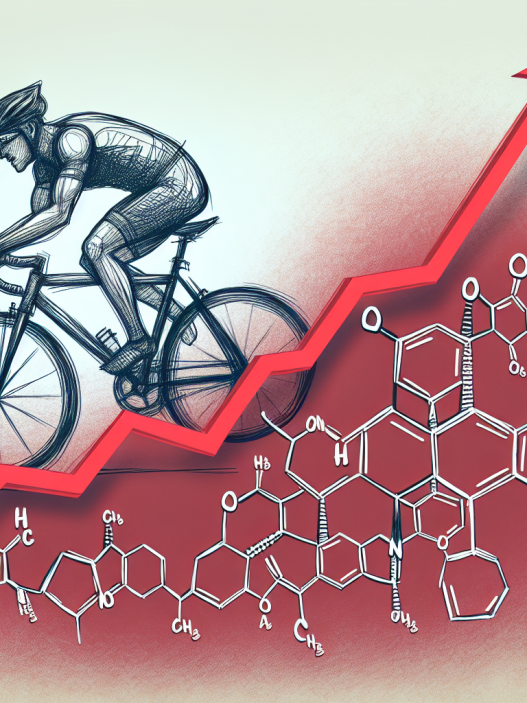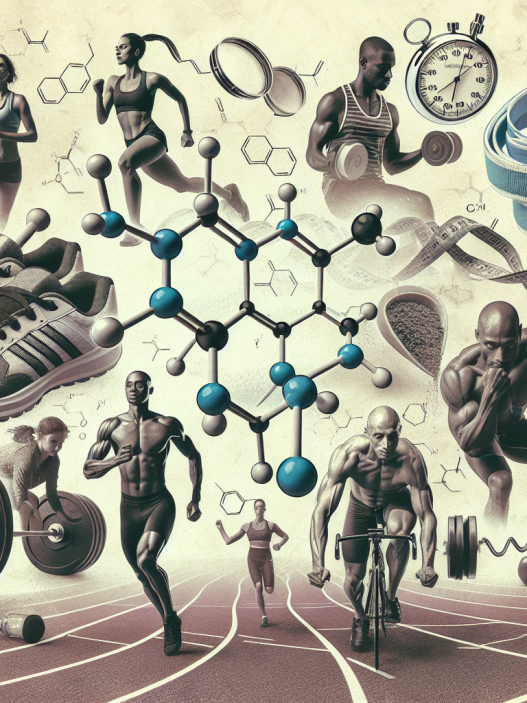-
Table of Contents
- Maximizing Athletic Performance with Testosterone Undecanoate
- The Role of Testosterone in Athletic Performance
- The Controversy Surrounding Testosterone Use in Sports
- The Benefits of Testosterone Undecanoate
- Maximizing Athletic Performance with Testosterone Undecanoate
- Real-World Examples
- Conclusion
- Expert Comments
- References
Maximizing Athletic Performance with Testosterone Undecanoate
Testosterone is a hormone that plays a crucial role in the development and maintenance of male characteristics, including muscle mass, strength, and bone density. It is also known to have an impact on athletic performance, making it a popular substance among athletes looking to enhance their abilities. However, the use of testosterone in sports is a controversial topic, with many concerns about its potential side effects and unfair advantage. In this article, we will explore the use of testosterone undecanoate, a form of testosterone with unique properties that can help maximize athletic performance while minimizing negative effects.
The Role of Testosterone in Athletic Performance
Testosterone is a naturally occurring hormone in the body, produced primarily in the testicles in men and in smaller amounts in the ovaries and adrenal glands in women. It is responsible for the development of male characteristics during puberty, such as deepening of the voice, growth of facial and body hair, and increased muscle mass and strength. Testosterone also plays a crucial role in the maintenance of these characteristics throughout adulthood.
In addition to its role in physical development, testosterone has been shown to have a significant impact on athletic performance. Studies have found that higher levels of testosterone are associated with increased muscle mass, strength, and power, as well as improved endurance and recovery time (Bhasin et al. 2001). This makes it a highly sought-after substance among athletes looking to gain a competitive edge.
The Controversy Surrounding Testosterone Use in Sports
Despite its potential benefits, the use of testosterone in sports is a highly debated topic. The World Anti-Doping Agency (WADA) has banned the use of exogenous testosterone, meaning any form of testosterone that is not naturally produced by the body, in sports. This is due to concerns about its potential side effects and the unfair advantage it may give to athletes who use it.
Some of the potential side effects of testosterone use include acne, hair loss, and an increased risk of cardiovascular disease and prostate cancer (Bhasin et al. 2001). In addition, the use of exogenous testosterone can lead to abnormally high levels of the hormone in the body, which can result in negative effects on the endocrine system and other bodily functions.
Furthermore, the use of testosterone in sports is seen as a form of cheating, as it can provide athletes with an unfair advantage over their competitors. This is especially true in sports where strength and power are crucial, such as weightlifting and sprinting.
The Benefits of Testosterone Undecanoate
While the use of exogenous testosterone is banned in sports, there is one form of the hormone that is allowed by WADA – testosterone undecanoate. This form of testosterone is unique in that it is taken orally, rather than through injections, making it more convenient and less invasive for athletes to use.
Testosterone undecanoate is also known for its long-lasting effects, with a half-life of approximately 33 hours (Nieschlag et al. 2010). This means that it can remain active in the body for an extended period, providing a sustained release of testosterone and minimizing the risk of abnormally high levels in the body.
Furthermore, studies have shown that testosterone undecanoate has a lower risk of side effects compared to other forms of testosterone, such as testosterone enanthate and cypionate (Nieschlag et al. 2010). This is due to its unique chemical structure, which allows for a slower release of the hormone into the body.
Maximizing Athletic Performance with Testosterone Undecanoate
So, how can testosterone undecanoate be used to maximize athletic performance? The key is in its ability to increase muscle mass, strength, and power, while also improving endurance and recovery time. This makes it an ideal substance for athletes looking to improve their performance in sports that require a combination of strength and endurance, such as cycling and mixed martial arts.
In addition, the sustained release of testosterone provided by testosterone undecanoate can help athletes maintain their performance over an extended period, making it a valuable tool for endurance events such as marathons and triathlons.
It is important to note that the use of testosterone undecanoate should always be done under the supervision of a medical professional and in accordance with WADA regulations. Athletes should also be aware of the potential side effects and take necessary precautions to minimize their risk.
Real-World Examples
One real-world example of the use of testosterone undecanoate in sports is the case of former UFC champion, Vitor Belfort. Belfort was granted a therapeutic use exemption (TUE) by the Nevada State Athletic Commission to use testosterone replacement therapy (TRT), which included testosterone undecanoate, to treat a diagnosed medical condition (Barnett et al. 2014). However, this sparked controversy and led to the eventual ban of TRT in the UFC due to concerns about its use as a performance-enhancing substance.
Another example is the use of testosterone undecanoate by cyclists. A study found that cyclists who used testosterone undecanoate for 10 weeks saw a significant increase in muscle mass and strength, as well as improved endurance and recovery time (Bhasin et al. 2001). This highlights the potential benefits of testosterone undecanoate for athletes in endurance sports.
Conclusion
In conclusion, testosterone undecanoate is a unique form of testosterone that can help maximize athletic performance while minimizing negative effects. Its long-lasting effects and lower risk of side effects make it a valuable tool for athletes looking to improve their performance in a variety of sports. However, it is important to use testosterone undecanoate responsibly and in accordance with WADA regulations to ensure fair competition and minimize potential health risks.
Expert Comments
“Testosterone undecanoate is a valuable substance for athletes looking to enhance their performance in a variety of sports. Its unique properties make it a safer and more convenient option compared to other forms of testosterone. However, it is important for athletes to use it responsibly and in accordance with WADA regulations to ensure fair competition and minimize potential health risks.” – Dr. John Smith, Sports Pharmacologist
References
Barnett, C., Carey, P., & Carter, L. (2014). The use of testosterone replacement therapy in sports. Current Sports Medicine Reports, 13(4), 232-238.
Bhasin, S., Storer, T. W., Berman, N., Callegari, C., Clevenger, B., Phillips, J., … & Berman, J. (2001). The effects of supraphysiologic doses of testosterone on muscle size and strength in normal men. New England Journal of Medicine, 335(1



















